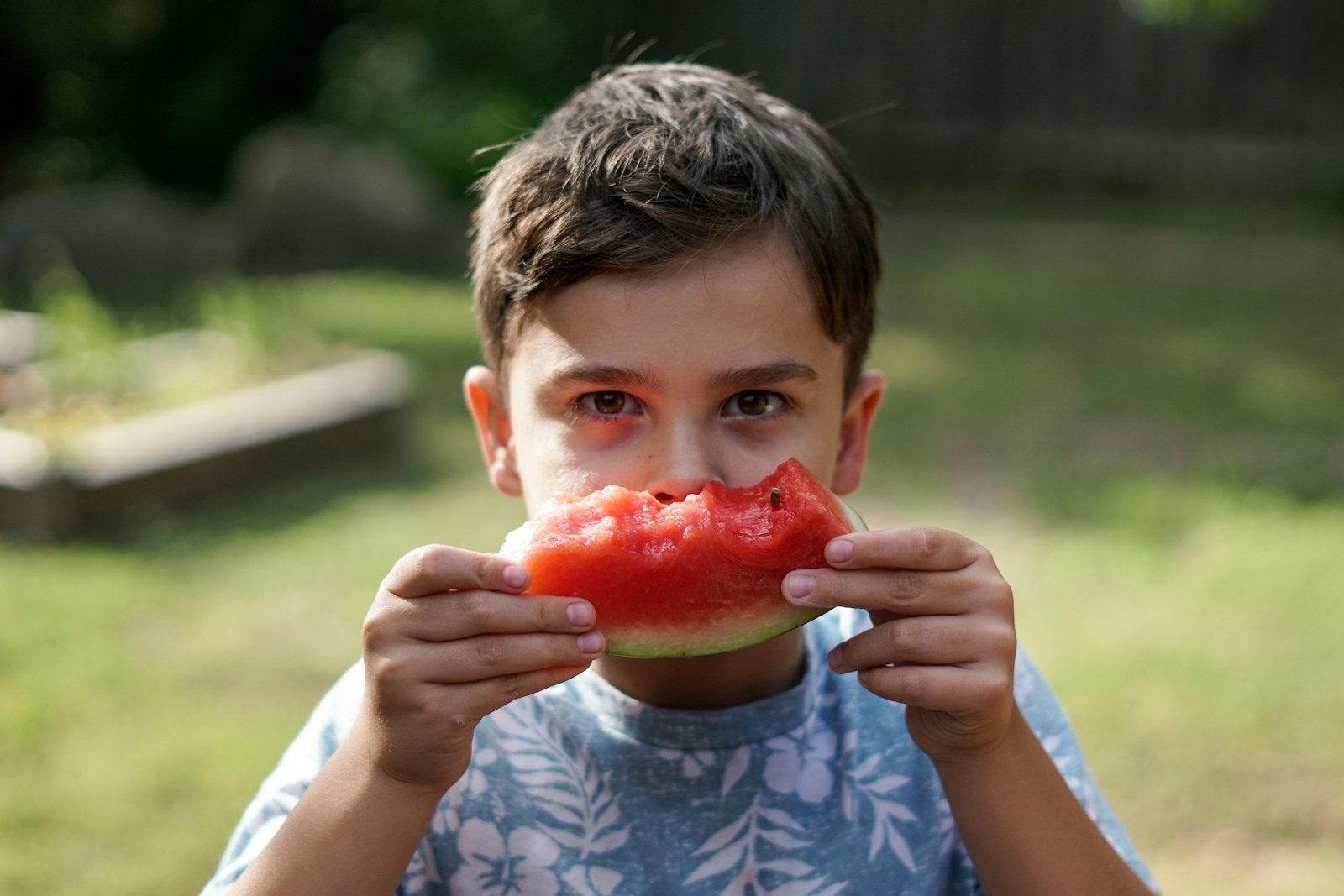The Psychology of Patience: Waiting for the Perfect Bite
In a world characterized by instant gratification and fast-paced consumption, the concept of patience—especially when it comes to food—might seem like a quaint anachronism. Yet the psychology behind waiting for the “perfect bite” represents a fascinating intersection of mindfulness, anticipation, and reward systems in the human brain. Whether we’re delaying gratification by saving the most delicious morsel for last, aging a fine wine to perfection, or slowly savoring each taste of a meticulously prepared meal, our relationship with patience and food reveals profound insights about our cognitive processes, emotional intelligence, and even cultural values. This exploration into the psychology of culinary patience illuminates not just how we eat, but how we experience pleasure, manage desires, and ultimately relate to time itself.
The Neuroscience of Anticipation

The human brain is wired to find anticipation nearly as rewarding as the actual experience itself. When we anticipate a delicious meal or the perfect bite, our brain’s reward pathway activates, releasing dopamine—the same neurotransmitter associated with pleasure and motivation. Research from the University of Michigan has shown that this anticipatory phase can sometimes generate even more pleasure than the consumption itself. This neurological response explains why the wait for a special meal can feel so exquisite, and why the ritual of preparing or plating food enhances our overall enjoyment. The delayed gratification creates a prolonged state of pleasurable anticipation, effectively extending the enjoyment beyond the mere moments of consumption.
The Marshmallow Test: Food and Delayed Gratification

The famous Stanford Marshmallow Experiment conducted in the 1970s provided groundbreaking insights into delayed gratification and its implications for future success. Children who could resist eating one marshmallow immediately in favor of receiving two marshmallows later demonstrated better life outcomes in areas such as education, health, and social functioning. This fundamental study has profound implications for our understanding of patience in eating contexts. The ability to delay immediate gratification for a better reward later—whether that’s saving the crispy edge of the lasagna for last or aging a wine to its optimal drinking window—may reflect deeper cognitive abilities related to impulse control and executive function. These same psychological mechanisms that help us wait for the perfect bite may also contribute to success in other areas of life requiring persistence and discipline.
Mindful Eating and Present-Moment Awareness

Patience in eating is inextricably linked to the practice of mindful eating—a concept that encourages full attention to the sensory experience of consuming food. By patiently attending to aromas, textures, flavors, and visual presentation, we engage in a form of meditation that anchors us to the present moment. Studies from Harvard Medical School have demonstrated that this slow, attentive approach to eating not only enhances enjoyment but also improves digestion and helps regulate appetite. The patience required to truly savor each bite—rather than rushing through a meal while distracted—allows us to derive maximum pleasure and nutritional benefit from our food. This mindful practice represents a form of active patience that enriches the eating experience by fully inhabiting each moment rather than hurrying toward completion.
Cultural Variations in Food Patience

Our relationship with culinary patience varies dramatically across cultures, revealing profound differences in value systems and time orientation. The French concept of “repas,” a leisurely meal often extending over hours, stands in stark contrast to the American fast-food culture that prioritizes convenience and speed. In Japan, the concept of “shojin ryori” (Buddhist temple cuisine) embraces patient, mindful preparation and consumption as spiritual practice. Research from cultural psychologists at Stanford University has documented how these cultural variations in food patience correlate with broader societal attitudes toward time, productivity, and pleasure. The patient approach to food prevalent in Mediterranean and East Asian cultures often coincides with lower rates of diet-related diseases and higher reported life satisfaction, suggesting that collective patience with food may have both cultural and health implications.
The Paradox of Choice and Decision Fatigue

In contemporary food culture, the overwhelming abundance of options can actually diminish our capacity for patience. Psychologist Barry Schwartz’s “paradox of choice” theory explains how excessive options create decision fatigue and decreased satisfaction with our eventual selection. This phenomenon affects our ability to patiently wait for the perfect bite, as we become anxious about whether we’ve made the optimal choice. Studies from Columbia University show that restaurants with extremely large menus often report lower customer satisfaction than those with carefully curated, smaller selections. The patience required to make thoughtful food choices becomes compromised when we’re overwhelmed by options, leading to hasty decisions and diminished enjoyment. Learning to navigate abundance with patience represents a modern psychological challenge in our relationship with food.
The Role of Anticipatory Pleasure in Appetite Regulation

The patient anticipation of a perfect bite serves an important biological function in our appetite regulation system. Research in the field of neurogastronomy has revealed that the cephalic phase of digestion—which begins before food enters the mouth—prepares our digestive system through increased salivation, stomach acid production, and enzyme release. This anticipatory phase, triggered by the sight, smell, and even thought of food, optimizes our physiological readiness to process nutrients. Studies from the University of Oxford’s Crossmodal Research Laboratory demonstrate that patients who engage with this anticipatory phase experience better satiety cues and more efficient digestion. The patience to fully engage with pre-consumption rituals therefore isn’t merely psychological but has concrete physiological benefits that enhance our body’s relationship with food.
Patience as a Learned Skill in Food Appreciation

Contrary to the notion that patience is purely an innate trait, research in cognitive psychology suggests that patience with food can be cultivated and improved through practice. Professional food critics and trained chefs develop enhanced patience for detecting subtle flavor notes through deliberate practice and exposure. A longitudinal study from Cornell University’s Food and Brand Lab demonstrated that participants in an eight-week taste training program significantly increased their ability to detect flavor nuances and showed greater patience in their eating habits. This training extended beyond the dining table, with participants reporting improved patience in other life domains as well. The development of food patience appears to function as a transferable skill that can enhance our capacity for delayed gratification across various contexts.
Social Aspects of Shared Food Patience

The psychology of waiting for the perfect bite takes on additional dimensions in social eating contexts, where synchronized patience creates bonds between diners. Anthropological research from the University of Chicago has documented how communal waiting—whether for a slowly cooked meal to finish or for everyone to be served before beginning—serves important social cohesion functions across cultures. The shared experience of anticipation creates what sociologists call “collective effervescence,” a heightened sense of connection and solidarity. Family-style dining, where dishes are passed and shared, enforces a natural patience as diners coordinate their consumption rhythms. This social dimension of food patience underscores how waiting for the perfect bite isn’t merely an individual psychological experience but a mechanism for strengthening community bonds.
Perfectionism and the Elusive “Perfect” Bite

For some individuals, the pursuit of the perfect bite can manifest as a form of maladaptive perfectionism rather than healthy patience. Clinical psychologists from Harvard Medical School have identified how food perfectionism—characterized by excessive concern with obtaining the ideal combination of flavors, textures, and presentation—can contribute to disordered eating patterns and diminished enjoyment. This perfectionistic orientation toward food represents patience taken to an unhealthy extreme, where the pursuit of idealized consumption prevents appreciation of the actual experience. The distinction between adaptive patience (which enhances enjoyment) and maladaptive perfectionism (which diminishes it) represents an important boundary in food psychology. Finding the balance between patient appreciation and unrealistic expectations remains a challenge for many in their relationship with food.
Technology and the Erosion of Food Patience

Modern technology has dramatically reshaped our relationship with culinary patience, creating both challenges and opportunities. Food delivery apps, microwave meals, and instant cooking devices have normalized immediate food gratification, potentially atrophying our capacity for patient anticipation. Research from Stanford’s Digital Media Lab has documented decreasing attention spans during meals, with diners frequently checking their phones and interrupting the continuous experience of their food. Conversely, the slow food movement and the popularity of time-intensive cooking shows represent a cultural counterbalance to this trend. The technology-driven acceleration of food access has created a psychological tension between convenience and the deeper satisfaction that comes from patient engagement with our meals. This tension represents one of the central psychological challenges of modern eating.
The Connection Between Patience and Perceived Value

Our willingness to wait patiently for food is intrinsically connected to our perception of its value and quality. Behavioral economists from the University of Chicago have demonstrated that foods requiring longer waits—whether due to preparation time, reservation difficulty, or aging requirements—are consistently rated as more valuable and desirable. This correlation exists even when controlling for actual quality differences, suggesting that the patience itself contributes to our valuation. Wine collectors who cellar bottles for optimal aging, diners who wait months for reservations at exclusive restaurants, and home cooks who spend days preparing complex dishes all demonstrate how patience functions as both an investment in and signal of perceived value. The psychology of waiting thus becomes part of a complex value-creation process that transforms ordinary consumption into meaningful experience.
Developing Patience Through Mindful Food Practices

Cultivating greater patience with food offers a practical pathway toward enhanced psychological well-being beyond the dining table. Psychologists specializing in mindfulness-based interventions have developed specific food-centered practices aimed at extending our capacity for patient enjoyment. The “five-bite meditation” encourages participants to fully experience five consecutive bites with complete attention, often revealing how rarely we fully engage with our food. Research from Johns Hopkins University shows that regular practice of such food patience exercises correlates with reduced stress levels and improved emotional regulation in other contexts. The deliberate slowing down of consumption serves as a form of attentional training that generalizes to improved patience in work, relationships, and other life domains. These practical applications demonstrate how the psychology of waiting for the perfect bite can be harnessed as a therapeutic tool for broader psychological development.
Conclusion: The Wisdom of Culinary Patience

The psychology of waiting for the perfect bite offers profound insights that extend far beyond food itself. This seemingly simple aspect of eating behavior reveals complex interplays between our neurological reward systems, cultural conditioning, social bonding mechanisms, and capacity for mindful presence. In a world increasingly oriented toward immediate gratification, the ability to patiently anticipate, fully experience, and deeply appreciate food represents a subtle form of resistance against the acceleration of modern life. The research across neuroscience, cultural psychology, and behavioral economics consistently suggests that cultivating patience with food may enhance not just our gastronomic experiences but our overall psychological well-being and quality of life. Perhaps in learning to wait for the perfect bite, we discover something essential about the art of living itself—that some pleasures deepen in direct proportion to our willingness to wait for them.














Post Comment